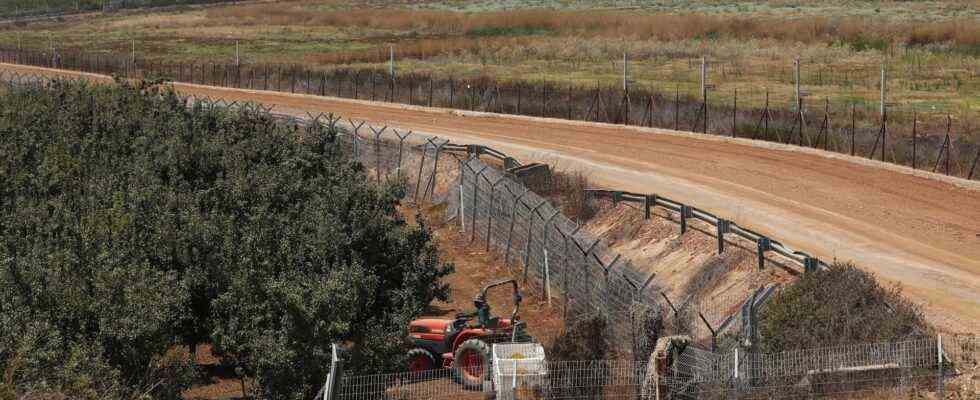As of: 08/18/2021 8:06 am
In order to reduce the high food prices, Israel wants to gradually open its food market to the EU. However, the government’s plans are met with fierce criticism – not just from farmers.
Angry farmers throw whole pallets of eggs on the street. They demonstrate in northern Israel with their tractors. “We are fighting here to keep our agriculture going,” said one of the demonstrators at the protest a few days ago. “We are against the bad plan of Finance Minister Avigdor Lieberman and Agriculture Minister Oded Forer. The two have teamed up: They want to destroy Israeli agriculture.”
The protest is directed against the agrarian reform planned by the government. The Israeli market is to be gradually opened to the EU – to the annoyance of local farmers. During the demo one shouts into a loudspeaker: “We want to earn a living with dignity. We farmers in the north, on the border with Syria and Lebanon, we are stabilizing the country. We are not the problem, but the solution for the country. “
Criticism of the supermarkets
Experts confirm the criticism. Within one to three years, farmers in Israel would stop producing staple foods, Amit Ben-Tzur, founder of the political think tank Yesodot, told the Jerusalem Post. So far there are customs duties and import regulations for products to Israel. The reform would not do justice to the complex situation, would cause irreparable damage to the agricultural sector and jeopardize the security of the food supply in the country, said Ben-Tzur.
One reason for the reform: the expensive food in Israel. The prices are too high, says a passer-by in Tel Aviv. “But I’m on the farmers’ side. The problem is with the supermarkets. They siphon off the profit at the expense of farmers and consumers.” She spends up to 50 percent of her income on food.
An older, well-dressed man says he is often in Europe. Fruit and vegetables are much cheaper there. “Everything is expensive here. Fortunately, I have a good pension and can afford everything. But many others cannot,” he says.
Reform aims to make food cheaper
According to OECD figures, Israel is the eighth most expensive country in the world. The cost of living is well above average. The Israeli Agriculture Minister Forer of the Israeli Beitenu party (“Our home Israel”) names cheaper food, more choice and more modern agriculture as reform goals. He defends the plans against criticism: “We need reforms. And we need healthy competition,” he says.
With 2.6 billion shekels – the equivalent of 65 million euros – the government is supporting farmers who are investing in new technology. And another 2.1 billion shekels (52 million euros) will go to farmers as direct financial aid, according to Forer. “We now have to catch up and promote the quality of Israeli products. I want consumers to decide for themselves which product to buy, from whom and from where.”
Big Corporations Responsibility?
The reform should now be pushed through in parliament too quickly, criticize critics and point out that the food prices in Israel are not so high because the farmers get so much for their products. Rather, farmers blame the large food companies for the inflation. They also wanted to look at this problem, the ministers promised.
Meanwhile, the debate continues, it is an emotional one. Also from representatives of agriculture. “3,000 people came here in the 1960s, to the Lebanese border, to produce eggs here,” says Avshalom Vilon from the Israeli Farmers’ Association. “Today they live on the equivalent of 1500 euros a month. That is their pension. And they are told: ‘Now Erdogan sends the eggs. Your time is up.'”
The debate follows almost exactly ten years after mass protests in Israel. At that time tens of thousands of people took to the streets to demonstrate against excessively high food prices and the cost of living. The protests at the time did not make life cheaper.
Israel’s controversial agricultural reform
Eva Lell, ARD Tel Aviv, August 13, 2021 3:03 p.m.

